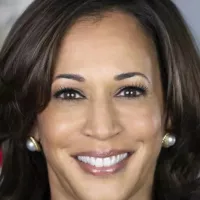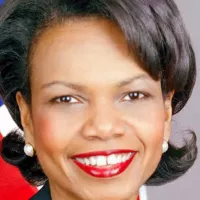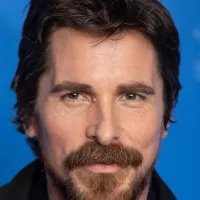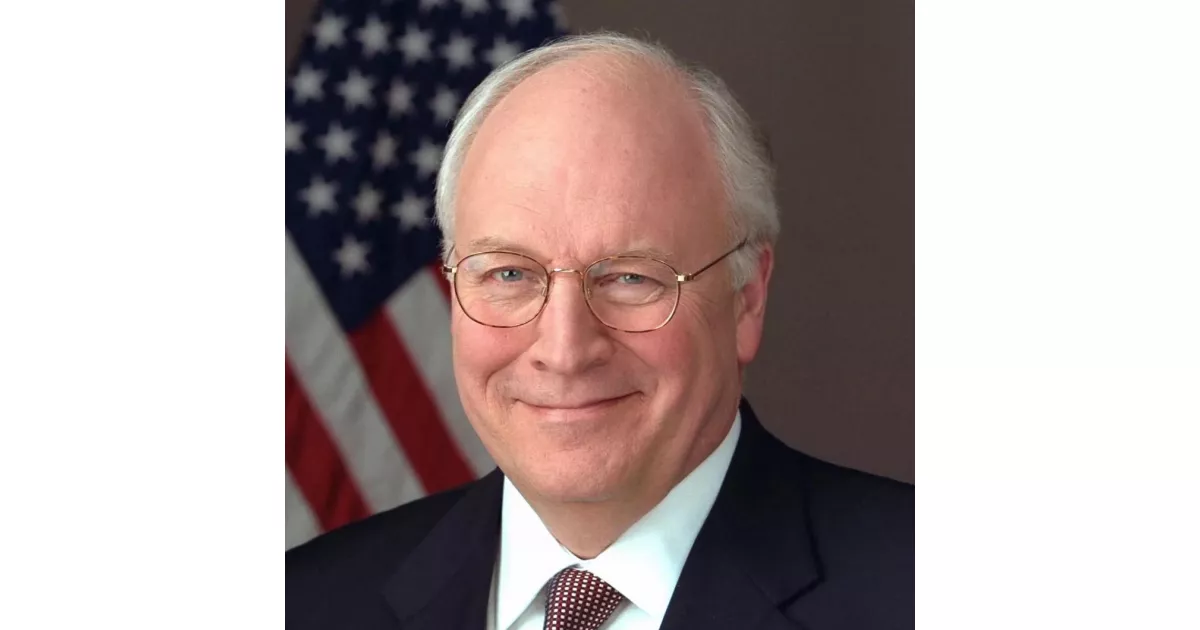Richard Bruce Cheney served as the 46th U.S. Vice President under George W. Bush (2001-2009), a tenure noted for its unprecedented power. A Republican, Cheney's career included roles as White House Chief of Staff under Gerald Ford, U.S. Representative for Wyoming, and Secretary of Defense under George H.W. Bush. He is widely regarded as a major figure in the decision to invade Iraq. Cheney's influence and policy decisions have made him a significant and controversial figure in recent American history.
January 30, 1941: Richard Bruce Cheney Born
On January 30, 1941, Richard Bruce Cheney was born. He later became the 46th Vice President of the United States.
November 1962: Cheney Convicted of DWI
In November 1962, Dick Cheney was convicted of driving while intoxicated (DWI).
1963: Cheney Arrested for DWI Again
In 1963, Dick Cheney was arrested again for driving while intoxicated (DWI).
1964: Cheney Married Lynne Vincent
In 1964, Dick Cheney married Lynne Vincent, his high-school sweetheart.
October 26, 1965: Draft expanded to include married men
On October 26, 1965, the draft expanded to include married men without children, impacting Cheney's draft status.
1966: Cheney drops out of doctoral program
In 1966, Dick Cheney dropped out of the doctoral program at the University of Wisconsin to become a staff aide for Governor Warren P. Knowles.
January 30, 1967: Cheney Turns 26, No Longer Eligible for Draft
On January 30, 1967, Dick Cheney turned 26 and was no longer eligible for the military draft.
1968: Cheney awarded congressional fellowship
In 1968, Dick Cheney was awarded an American Political Science Association congressional fellowship and moved to Washington, D.C.
1969: Cheney Starts Political Career
In 1969, Dick Cheney's political career began as an intern for Congressman William A. Steiger during the Richard Nixon Administration.
1970: Cheney joins Donald Rumsfeld's staff
From 1969 to 1970, Dick Cheney joined the staff of Donald Rumsfeld, who was then Director of the Office of Economic Opportunity.
1971: Cheney becomes White House Staff Assistant
In 1971, Dick Cheney became a White House Staff Assistant.
1973: Cheney becomes Assistant Director of the Cost of Living Council
From 1971 to 1973, Dick Cheney served as Assistant Director of the Cost of Living Council.
1974: Cheney becomes Deputy Assistant to the President
From 1974 to 1975, Dick Cheney was Deputy Assistant to the president.
1974: Cheney Appointed White House Deputy Chief of Staff
From December 1974 to November 1975, Dick Cheney served as Assistant to the President and White House deputy chief of staff under Gerald Ford.
1975: Cheney becomes White House Chief of Staff
From 1975 to 1977, Dick Cheney served as White House Chief of Staff during the Ford administration.
1975: Cheney Suggests Options to Limit Damage from NYT Article
In 1975, as Deputy Assistant to the President, Dick Cheney suggested options to limit damage from a New York Times article regarding Operation Ivy Bells.
1976: Cheney campaign manager for Ford
In 1976, Dick Cheney was the campaign manager for Gerald Ford's presidential campaign.
1977: End of role as White House Chief of Staff
In 1977, Dick Cheney's role as White House Chief of Staff came to an end.
1978: Cheney initially opposed MLK holiday
In 1978, Dick Cheney initially opposed establishing a national holiday in honor of Martin Luther King Jr.
1978: Cheney elected to U.S. House of Representatives
In 1978, Dick Cheney was elected to represent Wyoming in the U.S. House of Representatives.
1978: Presidential Records Act
In 1978, the Presidential Records Act was enacted to ensure that presidential records are properly preserved and made available to the public. This act became relevant later during Cheney's tenure when his staff opted not to file required reports with the National Archives and Records Administration beginning in 2003.
1979: Cheney Represents Wyoming in U.S. House
From 1979 to 1989, Dick Cheney represented Wyoming's at-large congressional district in the U.S. House of Representatives.
1979: Cheney becomes U.S. Representative for Wyoming
In 1979, Dick Cheney became the U.S. representative for Wyoming's at-large congressional district.
April 1980: Cheney Endorses Ronald Reagan for President
In April 1980, Dick Cheney endorsed Governor Ronald Reagan for president, becoming one of Reagan's earliest supporters.
1981: Cheney joins Republican Wednesday Group
In 1981, Dick Cheney joined the Republican Wednesday Group after being persuaded by Barber Conable.
1983: Cheney supported MLK Day
In 1983, Dick Cheney supported the creation of Martin Luther King Jr. Day.
1986: Cheney votes against overriding veto of Anti-Apartheid Act
In 1986, Dick Cheney was one of 83 Representatives to vote against overriding President Reagan's veto of the Comprehensive Anti-Apartheid Act, which aimed to impose economic sanctions on South Africa.
1986: Cheney Votes Against Resolution on Nelson Mandela's Release
In 1986, Dick Cheney, along with 145 Republicans and 31 Democrats, voted against a non-binding Congressional resolution calling on the South African government to release Nelson Mandela from prison.
1987: Cheney on the board of the Council on Foreign Relations
Between 1987 and 1989, during his last term in Congress, Cheney served on the board of the Council on Foreign Relations.
1987: Cheney elected Chairman of Republican Policy Committee
From 1981 to 1987, Dick Cheney was the Chairman of the Republican Policy Committee.
1987: Elected Chairman of House Republican Conference
In 1987, Dick Cheney was elected Chairman of the House Republican Conference.
March 1989: Cheney appointed Secretary of Defense
In March 1989, Dick Cheney was appointed Secretary of Defense after the U.S. Senate rejected John G. Tower's nomination.
May 1989: Noriega nullified the election outcome
In May 1989, after Guillermo Endara had been duly elected President of Panama, Noriega nullified the election outcome, drawing intensified pressure.
1989: Cheney on the board of the Council on Foreign Relations
Between 1987 and 1989, during his last term in Congress, Cheney served on the board of the Council on Foreign Relations.
1989: Cheney serves as House minority whip
In 1989, Dick Cheney briefly served as House minority whip.
1989: End of service in the House
In 1989, Dick Cheney concluded his service in the U.S. House of Representatives, having been re-elected five times.
1989: End of term as U.S. Representative for Wyoming
In 1989, Dick Cheney's tenure as the U.S. Representative for Wyoming ended.
1989: Cheney Discusses Deferments
In 1989, after Cheney was nominated for Secretary of Defense, he addressed his draft deferments during an interview with The Washington Post.
1989: Military personnel strength decrease
In 1989, total military personnel strength was about 2.2 million. Over Cheney's four years as Secretary of Defense, there was a 19% decrease.
1989: Cheney Faces Immediate Budget Issues
In 1989, upon becoming Secretary of Defense, Dick Cheney's immediate issue was the Department of Defense budget, which he deemed appropriate to cut and downsize the military.
August 1, 1990: Iraq invades Kuwait
On August 1, 1990, Iraqi president Saddam Hussein sent Iraqi forces into Kuwait, sparking the Persian Gulf War and worldwide condemnation.
1990: Cheney evaluates Department of Defense budget
In 1990, as Secretary of Defense, Dick Cheney assessed the Department of Defense budget, including expensive programs like the Avenger II Naval attack aircraft, the B-2 stealth bomber, the V-22 Osprey tilt-wing helicopter, the Aegis destroyer, and the MX missile.
1990: Proposed and adopted budgets followed patterns
In 1990, the proposed and adopted budgets followed similar patterns to that year, during Cheney's tenure.
January 12, 1991: Congress authorizes military force against Iraq
On January 12, 1991, Congress authorized President Bush to use military force to enforce Iraq's compliance with UN resolutions on Kuwait.
January 15, 1991: UN demands Iraq withdraw from Kuwait
By January 15, 1991, the UN Security Council demanded that Iraq withdraw its forces from Kuwait, authorizing "all means necessary" to eject Iraq.
January 17, 1991: Operation Desert Storm begins
On January 17, 1991, the first phase of Operation Desert Storm began with an air offensive targeting Iraqi command and control centers in cities like Baghdad and Basra.
1991: Concerns about nuclear components after Soviet Union collapse
In 1991, Cheney publicly expressed concern that nations like Iraq, Iran, and North Korea could acquire nuclear components after the collapse of the Soviet Union. He also believed NATO should remain the foundation of European security and urged the alliance to assist new Eastern European democracies.
1991: Cheney awarded Presidential Medal of Freedom
In 1991, Dick Cheney was awarded the Presidential Medal of Freedom by President George H. W. Bush.
1991: Cheney oversaw Operation Desert Storm
In 1991, as Secretary of Defense, Dick Cheney oversaw Operation Desert Storm.
1991: Somali Civil War drew world's attention
In 1991, the Somali Civil War drew the world's attention, leading to subsequent U.S. involvement.
1991: Plan to reduce military strength
In early 1991, Dick Cheney unveiled a plan to reduce U.S. military strength by the mid-1990s to 1.6 million, a reduction from 2.2 million when he assumed office.
April 1992: Noriega imprisoned
In April 1992, Manuel Noriega was convicted and imprisoned on racketeering and drug trafficking charges after the U.S. invasion of Panama.
August 1992: US provides humanitarian assistance to Somalia
In August 1992, the United States began providing humanitarian assistance, primarily food, to Somalia through a military airlift.
1992: Defense budget reduced
In 1993, Cheney reduced the defense budget from 1992. He removed programs Congress had directed the Department of Defense to buy weapons it didn't want, and he omitted unrequested reserve forces.
January 1993: End of term as Secretary of Defense
Dick Cheney's service as Secretary of Defense concluded in January 1993.
January 1993: Cheney joins American Enterprise Institute
In January 1993, with the inauguration of Bill Clinton, Cheney joined the American Enterprise Institute.
1993: Defense budget reduced
In 1993, Cheney reduced the defense budget from 1992. He removed programs Congress had directed the Department of Defense to buy weapons it didn't want, and he omitted unrequested reserve forces.
1993: End of term as Secretary of Defense
In 1993, Dick Cheney's term as Secretary of Defense ended.
1993: Military personnel strength decrease
In 1993, the military personnel strength was about 1.8 million. Over Cheney's four years as Secretary of Defense, there was a 19% decrease from 1989.
April 15, 1994: Cheney on occupying Baghdad
In an April 15, 1994, interview with C-SPAN, Cheney stated that occupying and attempting to take over Baghdad would have been a "bad idea" and would have led to a "quagmire".
October 1, 1995: Cheney becomes CEO of Halliburton
On October 1, 1995, Cheney became chairman of the board and CEO of Halliburton, a Fortune 500 company.
1995: Cheney serves a second term as a Council on Foreign Relations director
From 1993 to 1995, Cheney served a second term as a Council on Foreign Relations director.
1995: Cheney becomes Chairman and CEO of Halliburton
From 1995 to 2000, Dick Cheney was the chairman and CEO of Halliburton.
1998: Halliburton merger attracts criticism
In 1998, the merger between Halliburton and Dresser Industries attracted criticism for Halliburton's lack of accounting transparency.
July 2000: Cheney Chosen as Bush's Running Mate
In July 2000, George W. Bush chose Dick Cheney as his running mate for the 2000 presidential election.
July 25, 2000: Cheney resigns as CEO of Halliburton
On July 25, 2000, Cheney resigned as CEO of Halliburton, the same day he was announced as George W. Bush's vice-presidential pick.
July 28, 2000: Cheney Selected as Bush's VP Nominee
On July 28, 2000, a New York Times article acknowledged that the decision to select Cheney as Bush's Vice Presidential nominee was secretly made "weeks" before it was formally announced.
2000: Cheney campaigns against Lieberman
In 2000, Cheney campaigned against Al Gore's running mate, Joseph Lieberman, in the presidential election. During the election Cheney put his home in Dallas up for sale and changed his drivers' license and voter registration back to Wyoming.
2000: Cheney leaves Halliburton
In 2000, Dick Cheney left Halliburton and received a $33.7 million severance package.
2000: Cheney reverses position on Head Start funding
In 2000, Dick Cheney reversed his earlier position and supported funding for Head Start.
September 11, 2001: Start of Secret Counter-Terrorism Program
Shortly after the attacks of September 11, 2001, the counter-terrorism center at the CIA started a secret counter-terrorism program, which was later revealed in 2009 to have been withheld from Congress on direct orders from Dick Cheney.
September 21, 2001: Intelligence community finds no evidence of Saddam Hussein and Al-Qaeda
On September 21, 2001, President Bush received a classified President's Daily Brief indicating the U.S. intelligence community had no evidence linking Saddam Hussein to the September 11 attacks and that "there was scant credible evidence that Iraq had any significant collaborative ties with Al Qaeda."
2001: Cheney becomes Vice President
In 2001, Dick Cheney became the 46th Vice President of the United States under President George W. Bush.
2001: Cheney's Recollections of 9/11
In his memoir, 'In My Time', published in August 2011, Dick Cheney recounts his recollections of the events of September 11, 2001.
June 29, 2002: Cheney served as acting president
On the morning of June 29, 2002, Cheney served as acting president from 7:09 a.m. to 9:24 a.m., while President Bush underwent a colonoscopy, under the terms of the 25th Amendment to the Constitution.
July 2003: Supreme Court Ruling on NEPDG Documents
In July 2003, the Supreme Court ruled that the United States Department of Commerce must disclose NEPDG (National Energy Policy Development Group) documents. These documents contained references to companies that had agreements with the previous Iraqi government to extract Iraq's petroleum.
2003: Cheney's Staff Refuses to File Required Reports
Beginning in 2003, Dick Cheney's staff opted not to file required reports with the National Archives and Records Administration. Cheney refused to release the documents, citing his executive privilege. This led to questions from media outlets and a lawsuit from historians and open-government advocates concerning the handling of his vice-presidential records.
2003: Cheney's net worth estimated
In 2003, Cheney's net worth was estimated to be between $19 million and $86 million, largely derived from his position at Halliburton.
2004: Cheney supports same-sex marriage
In 2004, Dick Cheney publicly supported same-sex marriage, differing with President Bush.
2004: Cheney Reelected as Vice President
In 2004, Dick Cheney was reelected as Vice President of the United States with George W. Bush as president.
2004: 9/11 Commission concludes
In 2004, the 9/11 Commission concluded that there was no "collaborative relationship" between Iraq and al-Qaeda.
2004: Bush and Cheney re-elected
In the 2004 presidential election, Bush and Cheney were re-elected, running against John Kerry and his running mate, John Edwards. During the election, the pregnancy of his daughter Mary and her sexual orientation as a lesbian became a source of public attention for Cheney.
October 18, 2005: Report on Valerie Plame CIA Leak Scandal
On October 18, 2005, The Washington Post reported that the vice president's office was central to the investigation of the Valerie Plame CIA leak scandal. Cheney's former chief of staff, Lewis "Scooter" Libby, was one of the figures under investigation.
2005: Libby resigns
Until his indictment and resignation in 2005, I. Lewis "Scooter" Libby Jr. served as Cheney's chief of staff.
February 11, 2006: Cheney accidentally shoots Harry Whittington
On February 11, 2006, while quail hunting in Texas, Dick Cheney accidentally shot Harry Whittington, a 78-year-old attorney. Whittington sustained birdshot wounds to his face, neck, and chest and was treated by Secret Service agents and medical aides before being transported to a hospital.
February 14, 2006: Whittington suffers non-fatal heart attack
On February 14, 2006, three days after being accidentally shot by Cheney, Harry Whittington suffered a non-fatal heart attack and atrial fibrillation. This was due to birdshot pellets lodged in or near his heart, with doctors opting to leave most of the pellets in place due to their small size.
February 2006: Report on Libby's Testimony Before Grand Jury
In February 2006, The National Journal reported that Scooter Libby had stated before a grand jury that his superiors, including Dick Cheney, had authorized him to disclose classified information to the press regarding intelligence on Iraq's weapons.
February 16, 2006: Sheriff's office releases report on the shooting
On February 16, 2006, the sheriff's office released a report on the accidental shooting of Harry Whittington by Dick Cheney. Witness statements released on February 22 indicated the shooting occurred on a clear day and Whittington was shot from a distance. Discrepancies arose regarding the actual shooting distance.
February 27, 2006: Cheney's approval rating drops after shooting incident
On February 27, 2006, polls indicated that Dick Cheney's approval rating had dropped by 5 percentage points to 18% following the accidental shooting of Harry Whittington. The incident became a subject of jokes and satire.
April 2006: Ultrasound reveals blood clot reduction
In April 2006, an ultrasound revealed that a blood clot, previously detected, was smaller.
2006: Cheney's gross joint income
In 2006, Cheney's gross joint income with his wife was nearly $8.82 million, primarily from exercising Halliburton stock options.
2006: Cheney Subject of PBS Documentary 'The Dark Side'
In 2006, Dick Cheney was reported to be the subject of a PBS documentary called 'The Dark Side'. This documentary explored aspects of his career and influence.
February 27, 2007: Suicide Bombing During Cheney's Visit to Afghanistan
On February 27, 2007, a suicide bomber killed 23 people outside Bagram Airfield in Afghanistan during Dick Cheney's visit. The Taliban claimed responsibility, stating that Cheney was the intended target. He was inside the base at the time and reported hearing the blast.
March 5, 2007: Cheney treated for deep vein thrombosis
On March 5, 2007, Dick Cheney was treated for deep vein thrombosis in his left leg at George Washington University Hospital. He was prescribed blood-thinning medication and allowed to return to work.
March 6, 2007: Libby Convicted on Four Felony Counts
On March 6, 2007, Lewis "Scooter" Libby was convicted on four felony counts for obstruction of justice, perjury, and making false statements to federal investigators. The prosecutor referred to "a cloud over the vice president" during closing arguments.
April 2007: Cheney receives honorary doctorate from BYU
In April 2007, Dick Cheney was awarded an honorary doctorate of public service by Brigham Young University. His selection as commencement speaker was controversial but the college board framed it as an invitation to the Vice President of the United States rather than a partisan figure.
June 2007: Washington Post Series on Cheney's Vice Presidency
In June 2007, The Washington Post published a Pulitzer Prize-winning four-part series summarizing Cheney's vice presidency. The articles portrayed Cheney as having significant influence on presidential policies, often having the last word of counsel, and reshaping the powers of the presidency.
July 21, 2007: Cheney Serves as Acting President
On July 21, 2007, Dick Cheney served as acting president from 7:16 am to 9:21 am while President George W. Bush underwent a medical procedure requiring sedation. Bush transferred the power of the presidency to Cheney before the procedure and resumed his duties later that same day.
November 26, 2007: Cheney diagnosed with atrial fibrillation
On the morning of November 26, 2007, Dick Cheney was diagnosed with atrial fibrillation and underwent treatment that afternoon.
June 2008: Cheney Allegedly Blocked U.S. Deal with North Korea
In June 2008, Dick Cheney allegedly attempted to block efforts by Secretary of State Condoleezza Rice to strike a controversial U.S. compromise deal with North Korea over its nuclear program.
July 12, 2008: Cheney undergoes cardiology exam
On July 12, 2008, Dick Cheney underwent a cardiology exam. Doctors reported that his heartbeat was normal for a 67-year-old man with a history of heart problems.
July 2008: Allegations of Cheney's Office Deleting Climate Change Report
In July 2008, a former EPA official stated that Cheney's office had pushed significantly for large-scale deletions from a Centers for Disease Control and Prevention report on the health effects of global warming. These deletions were allegedly made to avoid regulating greenhouse gases.
October 15, 2008: Cheney treats a minor irregularity
On October 15, 2008, Dick Cheney returned to the hospital briefly to treat a minor heart irregularity.
2008: Cheney purchases home in McLean, Virginia
In 2008, Dick Cheney purchased a home on Chain Bridge Road in McLean, Virginia, which he tore down to build a replacement structure.
2008: Cheney Subject of HBO Mini-Series based on 'Angler'
In 2008, it was reported that Dick Cheney would be the subject of an HBO television mini-series based on Barton Gellman's book 'Angler: The Cheney Vice Presidency'.
January 19, 2009: Cheney strains back moving boxes
On January 19, 2009, Dick Cheney strained his back "while moving boxes into his new house." He was in a wheelchair for two days, including the 2009 United States presidential inauguration.
May 2009: Cheney Expresses Support for Same-Sex Marriage
In May 2009, Dick Cheney publicly expressed his support for same-sex marriage. This was a notable stance, making him one of the most prominent Republican politicians to do so at the time.
July 11, 2009: CIA Withheld Information on Secret Program on Cheney's Orders
On July 11, 2009, CIA director Leon Panetta told the Senate and House intelligence committees that the CIA had withheld information about a secret counter-terrorism program from Congress for eight years on direct orders from Dick Cheney.
December 29, 2009: Cheney Criticizes Obama's National Security Policies
On December 29, 2009, Dick Cheney criticized President Barack Obama's approach to national security, particularly in response to an attempted bombing of an international passenger flight. He argued that Obama's policies made the United States less safe.
2009: Cheney's Interview with FBI Agents Made Public
In 2009, Dick Cheney's interview with FBI agents investigating the Libby case was made public. This interview contributed to the ongoing scrutiny of Cheney's involvement in the matter.
2009: End of Vice Presidency
In 2009, Dick Cheney's tenure as Vice President of the United States came to an end.
February 14, 2010: Cheney Reiterates Support of Waterboarding
On February 14, 2010, during an appearance on ABC's This Week, Dick Cheney reiterated his support of waterboarding and the torture of captured terrorist suspects. He stated that he remained a strong proponent of the enhanced interrogation program.
February 22, 2010: Cheney admitted to hospital after chest pains
On February 22, 2010, Dick Cheney was admitted to George Washington University Hospital after experiencing chest pains. A spokesperson later said Cheney had experienced a mild heart attack after doctors had run tests.
June 25, 2010: Cheney admitted to hospital after reporting discomfort
On June 25, 2010, Dick Cheney was admitted to George Washington University Hospital after reporting discomfort.
July 2010: Cheney outfitted with left-ventricular assist device
In early-July 2010, Dick Cheney was outfitted with a left-ventricular assist device (LVAD) at Inova Fairfax Heart and Vascular Institute to compensate for worsening congestive heart failure. The device pumped blood continuously through his body.
August 9, 2010: Cheney released from Inova
On August 9, 2010, Dick Cheney was released from Inova Fairfax Heart and Vascular Institute after being outfitted with a left-ventricular assist device (LVAD). He had to decide whether to seek a full heart transplant.
December 2010: Cheney named in corruption complaint
In December 2010, Cheney was named in a corruption complaint filed by the Nigerian government against Halliburton.
May 2, 2011: Cheney Praises Obama Administration for Bin Laden Raid
On May 2, 2011, Dick Cheney praised the Obama administration for the covert military operation in Pakistan that resulted in the death of Osama bin Laden, acknowledging the success of the mission.
June 2011: Supreme Court reverses ruling in Halliburton case
In June 2011, the United States Supreme Court reversed a lower court ruling and allowed a class-action lawsuit against Halliburton to continue.
March 24, 2012: Cheney undergoes heart transplant
On March 24, 2012, Dick Cheney underwent a seven-hour heart transplant procedure at Inova Fairfax Hospital in Woodburn, Virginia. He had been on a waiting list for more than 20 months before receiving the heart from an anonymous donor.
July 2012: Cheney Hosts Fundraiser for Mitt Romney
In July 2012, Dick Cheney hosted a private fundraiser for Republican presidential candidate Mitt Romney at his Wyoming home. The event raised over $4 million for Romney's campaign.
2012: Cheney Encourages Maryland Legislators to Legalize Same-Sex Marriage
In 2012, Dick Cheney reportedly encouraged several Maryland state legislators to vote to legalize same-sex marriage in that state, demonstrating his continued support for the issue.
March 15, 2013: The World According to Dick Cheney Premieres
On March 15, 2013, the documentary film 'The World According to Dick Cheney' premiered on the Showtime television channel. This film explored Cheney's life and career.
2014: Cheney continued to mislead
By 2014, Cheney continued to misleadingly claim that Saddam "had a 10-year relationship with al Qaeda".
2014: Cheney recounts meeting with President Bush
In 2014, Dick Cheney recounted his meeting with President Bush to accept the offer of Secretary of Defense, recalling a painting he saw and its connection to his family history.
November 2015: Bush describes Cheney as "having his own empire"
In November 2015, Jon Meacham's book Destiny and Power: The American Odyssey of George Herbert Walker Bush was published. The book describes Bush as being simultaneously laudatory and critical of Dick Cheney, with Bush describing him as "having his own empire" and being "very hard-line."
2015: Cheney publishes "Exceptional: Why the World Needs a Powerful America"
In 2015, Dick Cheney co-authored a book with his daughter Liz titled "Exceptional: Why the World Needs a Powerful America". The book discusses U.S. foreign policy and military successes and failures from Franklin Roosevelt's administration through the Obama administration and criticizes Barack Obama's and Hillary Clinton's foreign policies.
May 2016: Cheney Endorses Donald Trump for President
In May 2016, Dick Cheney endorsed Donald Trump as the Republican nominee in the 2016 presidential election. This marked his support for Trump's candidacy.
May 2016: Cheney supports Donald Trump in presidential election
In May 2016, Dick Cheney publicly announced that he would support Donald Trump in the 2016 presidential election.
2016: Cheney Endorses Donald Trump
In 2016, Dick Cheney endorsed Donald Trump for president.
January 2017: Liz Cheney Sworn into House of Representatives
In January 2017, Liz Cheney, Dick Cheney's daughter, was sworn into the House of Representatives. She was elected to his former congressional seat.
March 2017: Cheney Calls Russian Interference an "Act of War"
In March 2017, Dick Cheney stated that Russian interference in the 2016 United States elections could be considered "an act of war."
April 2018: Libby Pardoned by President Trump
In April 2018, Lewis "Scooter" Libby was pardoned by President Donald Trump. This followed Cheney's earlier unsuccessful lobbying efforts to President George W. Bush for a full presidential pardon for Libby.
May 2018: Cheney supports Trump's decision to withdraw from Iran Nuclear Deal
In May 2018, Dick Cheney supported Donald Trump's decision to withdraw the United States from the Joint Comprehensive Plan of Action (Iran Nuclear Deal).
March 2019: Cheney criticizes Trump administration
In March 2019, Dick Cheney criticized the Trump administration at the American Enterprise Institute World Forum alongside Vice President Mike Pence, questioning Trump's commitment to NATO and his tendency to announce policy decisions on Twitter before consulting senior staff members.
2020: Cheney appeared at a Trump 2020 Fundraiser
In 2020, Dick Cheney appeared at a Trump 2020 fundraiser.
2020: Trump's attempt to overturn presidential election
In 2020, after the presidential election, Donald Trump attempted to overturn the results.
2022: Cheney calls Trump a "coward" in primary ad for Liz
In 2022, Dick Cheney appeared in a primary campaign ad for his daughter Liz Cheney, calling Donald Trump a "coward" and a "threat to our republic" due to his attempts to overturn the 2020 United States presidential election.
September 6, 2024: Cheney to vote for Kamala Harris in 2024 election
On September 6, 2024, Dick Cheney released a public statement confirming that he intended to cast his vote in the 2024 presidential election for Democratic nominee Kamala Harris.
2024: Cheney endorses Kamala Harris
In 2024, Dick Cheney endorsed Democratic nominee Kamala Harris in the presidential election.
November 3, 2025: Death of Dick Cheney
On November 3, 2025, Dick Cheney died due to complications from pneumonia and vascular disease.
Mentioned in this timeline

Martin Luther King Jr was a pivotal leader in the...

George W Bush the rd U S President - is...

Kamala Harris is an American politician and attorney She served...

The White House located at Pennsylvania Avenue NW in Washington...

Condoleezza Rice is a prominent American diplomat and political scientist...
The Union of Soviet Socialist Republics USSR existed from to...
Trending

3 minutes ago Kristi Noem Testifies at Senate Hearing on DHS Shutdown and Immigration

1 hour ago Rachel Weisz Explores Steamy Fantasies in Netflix's 'Vladimir' Series Featuring Leo Woodall.

1 hour ago Zack Snyder reveals why Christian Bale's Batman didn't appear in BvS and DCEU.
1 hour ago Kevin Warsh's potential impact on Federal Reserve policies and rate cut outlook.
1 hour ago Yavapai College Board to meet in person; Midland College approves drilling agreement.

1 hour ago Vodafone and Amazon Leo Partner to Expand Mobile Coverage in Europe and Africa
Popular

Jesse Jackson is an American civil rights activist politician and...

Hillary Diane Rodham Clinton is a prominent American politician lawyer...

Jim Carrey is a Canadian-American actor and comedian celebrated for...

XXXTentacion born Jahseh Dwayne Ricardo Onfroy was a controversial yet...

Michael Joseph Jackson the King of Pop was a highly...

Bill Clinton served as the nd U S President from...
